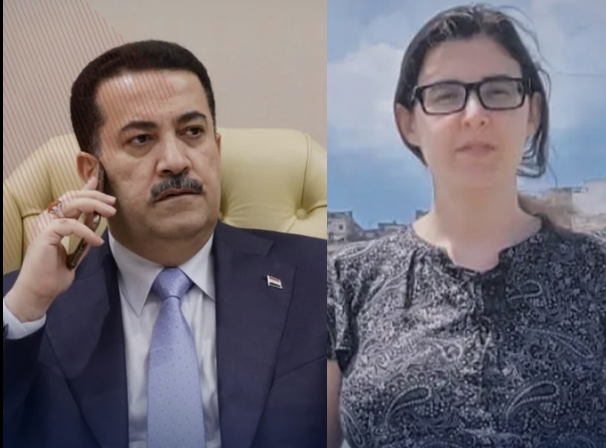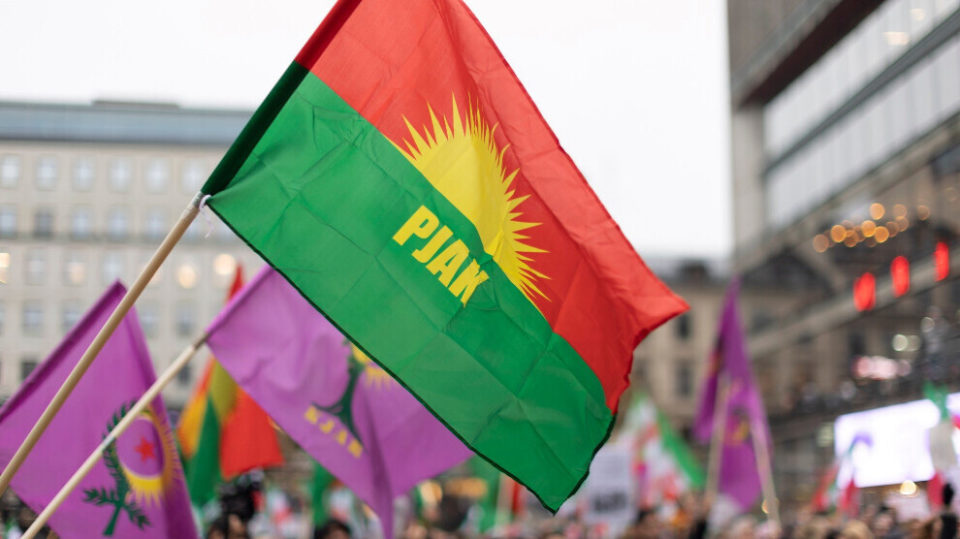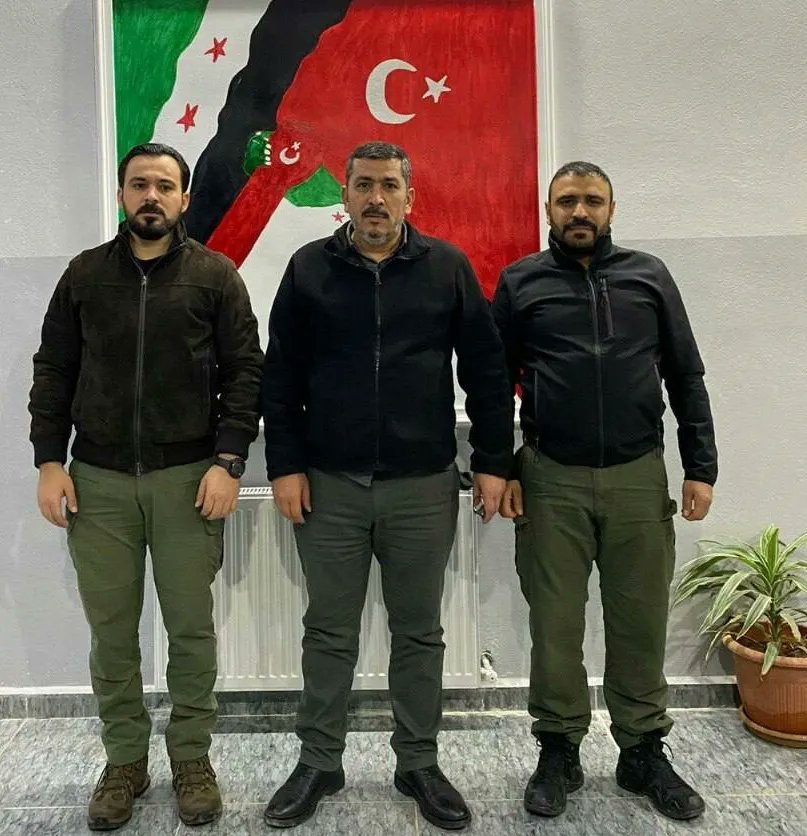Ireland’s Foreign Fighters
Ireland’s Foreign Fighters
Since the start of the Syrian uprising in 2012, around 30 to 50 Irish citizens are believed to have traveled to the country to join various Sunni rebel groups. At least three of them are known to have been killed. Although these numbers are small compared to other large European countries such as France or Germany, they are high when taking into consideration Ireland’s total Muslim population of around 50,000. Indeed, according to one study, Ireland has the highest rate of Muslim participation in the Syrian conflict of any country besides Finland (The Journal [Ireland], September 5, 2014; CNN, September 1, 2014). The proportion of Irish recruits active with the Islamic State (IS) group is also believed to be high. For instance, in November, the country’s former justice minister said that the government was aware that approximately “30-40 people from this country […] had gone to fight with Islamic State in Syria," including both citizens and residents of Ireland (Independent [Ireland], November 21, 2015).
As in many cases, the initial wave of Irish volunteers to fight in Syria in early 2012 and 2013 were motivated more by anger at the Syrian government’s brutal crackdown on protesters than by clear aspirations to set up an Islamic State. Many of these fighters also operated relatively openly. Mahdi al-Harati for example, a Irish-Libyan, became a leading figure in the Libyan uprising against Colonel Muammar Gaddafi in 2011 and a minor Irish celebrity in the process, openly traveling to Syria to assist rebels there in 2012 (Irish Times, August 13, 2011). Drawing on his Libyan experience, al-Harati helped found Liwaa al-Umma, a relatively moderate Islamist-leaning militia, before returning to Ireland. Liwaa al-Umma later merged with the Free Syrian Army, the main western-backed rebel group. Al-Harati’s presence attracted at least two other Irish nationals to join Liwaa al-Umma. One was al-Harati’s brother-in-law, Housam Najjair, a 33-year old builder who was also a veteran of the Libyan uprising, and who later described his motivations: "It wasn’t a religious war of any sorts… the mission in general was to topple the dictatorship. And our mission in particular was to help the Syrians themselves: train them how to protect themselves, how to maintain their weapons to topple the regime. After we passed on what knowledge we had, I returned" (Irish Times, August 1, 2012; Independent [Ireland], February 7, 2012).
Another Irish citizen who travelled to Syria during this early phase to join Liwaa al-Umma was a Jordanian-born Palestinian, 22-year old Alaa Ciymeh, who had been brought up in Ireland before returning to Jordan in 2008. He was killed while fighting for the group in April 2013 (Irish Times, May 3, 2013; Herald [Ireland], June 27, 2014). Another Irish citizen, 22-year old Hudhaifa ElSayed, who was of Egyptian origin but raised in Ireland’s County Lough, was killed with Liwa al-Umma during a clash with Syrian government forces in Idlib province in northern Syria in December 2012 (The Journal, December 20, 2012). Another individual, 16-year old Shamseddin Gaidan, a Dublin resident of Libyan origin, was killed in Syria in February 2013 fighting with an unknown rebel group, having crossed into the country from Turkey the previous year (Independent [Ireland], February 23, 2013).
Although details of Irish involvement in more hardline groups such as the Islamic State or al-Qaeda’s official Syrian affiliate, Jahbat al-Nusra, are scarce, there is evidence that Irish citizens are active with these groups. In August 2014, Irish media reported that a self-described "Irish-Nigerian" convert to Islam had been trying to recruit individuals to come to Syria via the ask.fm internet forum, an approach used by other Islamic State recruiters (Independent, August 21, 2014). In one exchange, the individual – whose online name was "Muthenna ibn Abu" – defended IS’s beheading of British aid worker, David Haines (Independent, September 14, 2014). His identity and current whereabouts are unknown.
There is evidence that Ireland, as well as a key exporter of jihadists, is home to a number of Islamic State supporters who are actively providing financial and other forms of support, using the country not only as a recruiting center, but as a logistical hub. At present, the Irish government is seeking to deport a 52-year old individual (who cannot be named for legal reasons) to a Middle Eastern country (The Journal, December 29). The government has described him as "the foremost organizer and facilitator of travel by extremists prepared to undertake violent action” on behalf of Islamic State in Ireland, and of having also recruited for jihadist groups in Afghanistan (Ibid). In a potentially related development, in November 2015, citing a security service source, Irish media reported that "a small number of Irish-based Muslim extremists" with a "central group consisting of around 12 radicals" had been sheltering British and European jihadists, including supplying them with fake passports for travel (Irish Independent, November 1, 2015). The source additionally said that Ireland was being used as a stop-off point for jihadists en route to Turkey, in order to confuse security services watching for jihadists travelling to Turkey directly (Ibid).
There is also evidence that some of the Islamic State’s online supporters are based in Ireland. In November 2015, independent cyber security analysts used leaked details of Islamic State-supporting Twitter accounts to establish that between 20 and 50, active Islamic State online-based supporters were residing in Ireland (The Journal, November 23). In another indicator of latent support for the Islamic State domestically, Irish Muslims responsible for organizing a ‘Not in Our Name’ protest against the terrorist group in July 2015 have said they were assaulted by two self-identified Islamic State supporters in an unnamed mosque in Dublin (Irish Times, July 27).
One potential cause of Irish radicalization, aside from the typically effective propaganda, is the range of Islamist groups from the Arab world with strong ideological commitments to "sharia law" and to creating an "Islamic state" are strongly entrenched in Irish Muslim communities. These have prepared the ground for recruitment and hampered attempts to combat it. Most notably, the Muslim Brotherhood-linked Islamic Cultural Centre of Ireland (ICCI), based in a mosque in Clonskeagh on Dublin’s outskirts, has positioned itself as a representative of all Muslims in Ireland and consequently enjoys privileged access to the government. This group is closely tied to the hardline European Council for Fatwa and Research, run by Muslim Brotherhood figurehead Yusuf al-Qaradawi, which has sought to promote highly conservative interpretations of Islam to European Muslims. Even today, ICCI’s website openly offers PDFs of books calling for adulterers to be flogged or stoned to death, thereby directly promoting the same core Islamist ideologies as the Islamic State itself, even while remaining a key partner of the Irish government [1].
As with other Islamist-influenced organisations in the West, the ICCI has also consistently denied that any radicalization is taking place in Ireland, greatly hampering the authorities’ attempts to understand domestic radicalization or gain the support of Muslim communities. For instance, following the November 2015 Paris attacks, the ICCI’s spokesman, Ali Selim, told Irish media that while he condemned the attacks, Irish Muslims "have not been entertaining the ideas [the Islamic State] has been trying to sell them" (RTE, November 14, 2015). The ICCI has also sought to publicly undermine other Muslim group’s anti-Islamic State protests, for instance, refusing to join an anti-Islamic State march organized by a non-Islamist Sufi Muslim group, further undermining Irish efforts to combat Islamist radicalization (Irish Independent, July 5, 2015).
To date, the Irish government, which has traditionally maintained a neutral foreign policy, has said relatively little publicly about the potential Islamist terrorist threat. For instance, after the Paris attacks, the defense minister said that "the latest threat assessment to Ireland does not increase… it is low," and rejected claims that the country’s 9,500 strong Defence Force was inadequately equipped to deal with the terrorist threat (RTE, November 18, 2015). His remarks underscore the government’s assessment that the Irish security services, despite their small size, have an extremely competent counter-terrorism wing, honed over decades of tackling Irish republican militancy. The question, however, is to what extent this expertise can now be repurposed towards dealing with militant Islamism, especially given that the threat is rapidly growing and evolving. The Irish police (Garda), however, took one important initial step in 2014 when it established a ‘Counter Terrorism International’ unit to specifically target Islamist extremists and militants linked to Ireland (Independent, January 18, 2015). The Irish security services also already enjoy close links with various international partners, particularly the UK and the U.S. as well as the European Union, and are therefore positioned to leverage these relations to monitor and counter Islamist militant threats linked to the Middle East, the UK or Europe.
Despite this progress, the Irish security services – even its specialized Islamist-focused unit – face significant resourcing and expertise shortfalls. Irish media recently reported the police lack key counterterrorism tactics such as knowledge of the Arabic-language skills, a dedicated unit tracking jihadist social media and a de-radicalization strategy to rehabilitate returning foreign fighters (Irish Examiner, November 21, 2015). As the above instances demonstrate, Irish jihadists’ alleged use of the country as a logistical and transport hub where false passports can be procured poses potential risks not only to Ireland but also to its allies. Uniquely, Irish citizens do not need passports to travel to the UK, and the country is part of the EU and enjoys easy travel to the US under the latter’s visa waiver system. As a result, Islamist radicalization in Ireland may not just pose a threat within Ireland’s borders, but also to countries further afield.
James Brandon is a political and security risk analyst.
Notes
1. ‘Adultery and Fornication in Islam’, PDF document, Islamic Cultural Centre of Ireland [Last accessed: December 29, 2015] https://www.islamireland.ie/site/assets/files/1181/adultery_and_fornication_in_islam.pdf


